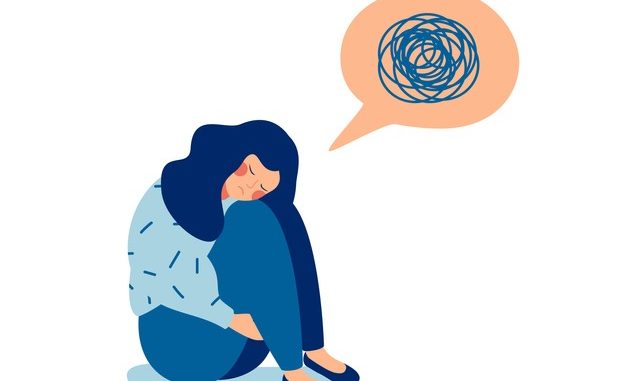
If you rehash past conversations, dwell on your choices or get trapped in a tunnel of ‘what if’ scenarios, there’s a pretty good chance you’re an overthinker
CREDIT: This is an edited version of an article that originally appeared on Huffington Post
Widespread rumination and over-obsessing has become somewhat of an epidemic recently. One study found that 73% of adults between the ages of 25 and 35 overthink, as do 52% of 45 to 55-year-olds.
Interestingly, research has found that many overthinkers believe they’re actually doing themselves a favour by cycling through their thoughts, but the truth of the matter is that overthinking is a dangerous game which can have a lot of negative consequences on our well-being. As David Spiegel, the director of the Center on Stress and Health at Stanford Health Care, puts it, “There are times when the worry about the problem is a lot worse than the problem itself.”
Here’s what happens to your body when you overthink:
You’re less likely to take action
Overthinking creates so many options, choices and scenarios that you end up unable to make a decision — a concept called analysis ‘paralysis’. “You could get stuck in potential consequences that may not even happen, just worrying about certain outcomes, and that can paralyse us or freeze us from taking an action,” says Rajita Sinha, the director of the Yale Stress Center.
If you don’t try things, you don’t fail, which may be a potential concern ― but you also don’t succeed, she added. When you do finally move forward with a decision you might end up making the wrong one because you got so mixed up by all your competing thoughts.
“Your gut feeling, or instinct, gets overridden because you have so much other input …and you may end up not making the choices that are right for you in that moment,” says Laura Price, a clinical assistant professor in the department of psychiatry at NYU Langone Health.
You’re less creative
Another study discovered that, when certain parts of your brain and cognitive processes are quiet, you’re more creative. Overthinking — which can lead to a ‘mental rut’, as the study notes — can cause you to get stuck, and run out of ideas or new solutions. While some overthinking can lead to fresh, new ideas, it can also backfire, creating mental roadblocks that make it challenging to think in novel ways.
A study from Stanford came to the same conclusion. While hooked up to magnetic resonance imaging machines (MRIs), participants were asked to draw a series of images — some easy to illustrate, some difficult. The more difficult the images were to draw, the more the participants had to think, and the less creative their drawings were; on the flip side, the less thought involved, the more creative the drawings were. In short, too much thinking seems to put a cap on creativity.
Your energy levels might drop
It takes a lot of mental energy to overthink. Your brain is generating so many different thoughts and scenarios that aren’t really going toward anything productive. “Mental energy without any sort of physical outlet absolutely can be fatiguing, and make it feel like you’re exhausted because you spent so much time inside your own head,” Laura says.
David adds that when we overthink, and stress ourselves out, our bodies produce cortisol, the stress hormone. Over time, this constant release of cortisol can be depleting and cause burnout. “It’s like running your car in the wrong gear. Your motor’s running but you’re not getting very far.”
Your sleep may take a hit
Lots of overthinkers struggle with falling asleep, shuffling through thoughts rather than shutting down and getting some shut-eye.
Your body needs to get into a state of calm in order to sleep — your heart rate needs to go down, as does your blood pressure and breathing. Overanalysing can be arousing, especially when the thoughts are more anxious; this can pull you out of the soothing state your body needs to be in for sleep, according to David.
And once your sleep starts suffering, it’s easy to get stuck in a nasty whirlwind of exhaustion and sleep deprivation. “If you don’t sleep as well, you have less energy, you get less exercise and then you sleep even worse,” David says.
Your appetite might change
Overthinking can even have a profound impact on people’s appetites; for some, it can suppress appetite, and for others, it can boost it — which is more common.
David calls this ‘worry eating’, and says people do it because it can be distracting, or even soothing. Many people tend to go for the tastiest and unhealthiest things when they’re stressed – David points out that there’s a reason high-fat, sugary foods are called ‘comfort foods’.
Additionally, cortisol — that stress hormone we talked about earlier — increases your appetite along with your motivation to eat, according to Harvard University.
Overthinking doesn’t just affect you mentally, it also has a physical impact on your life. Although it’s a lot easier said than done, trying not to overthink will help you to achieve more wellbeing in your life.
So the next time your brain starts going into overdrive, try and put the brakes on.
Don’t forget to follow us on Twitter, or connect with us on LinkedIn!

Be the first to comment